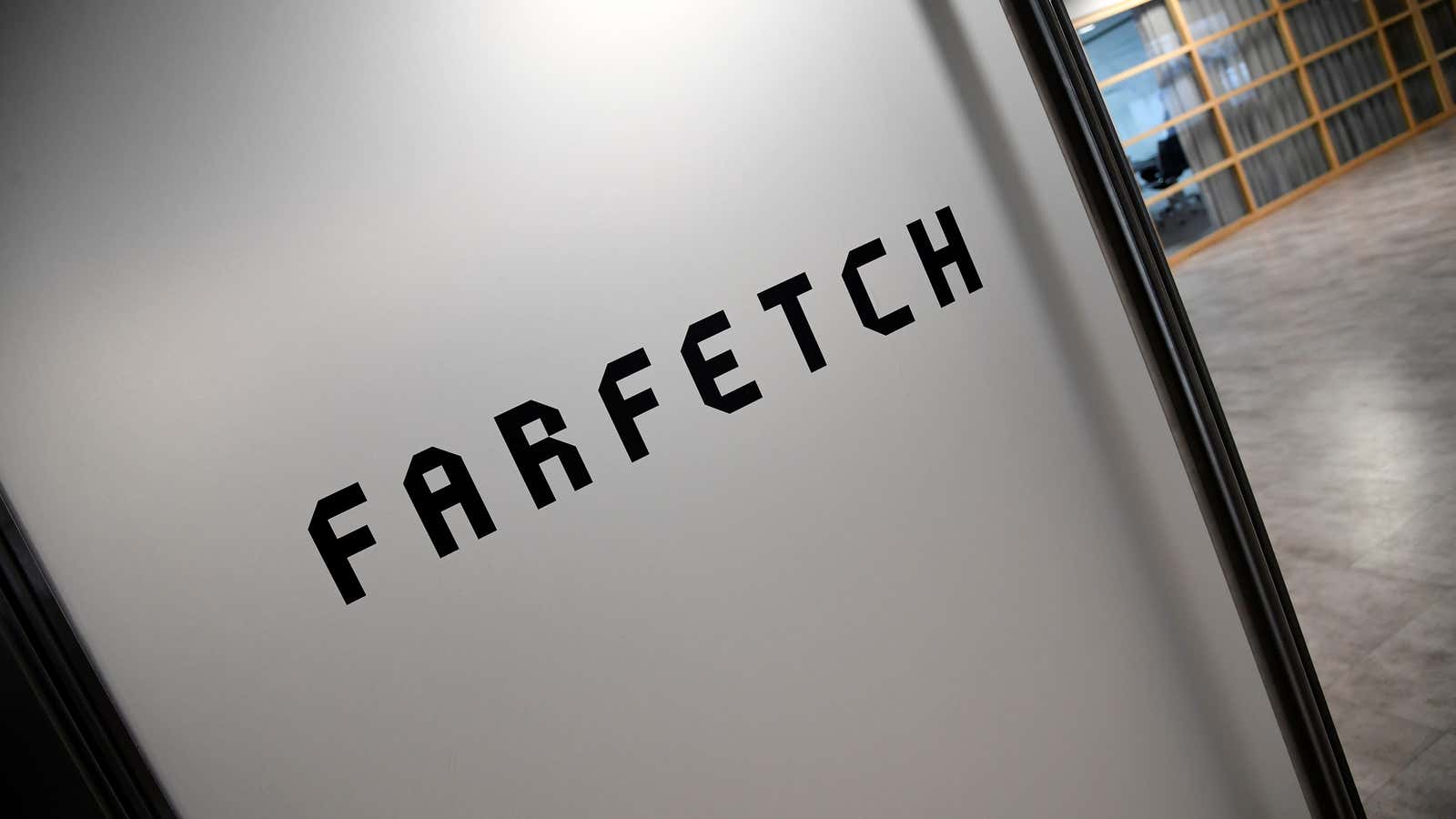Farfetch, a global powerhouse in luxury e-commerce, is joining forces with Chalhoub Group, the family firm that is one of the Arab world’s biggest luxury players. The companies announced the deal yesterday (Jan. 31), and together, they’re aiming to dominate the online market in the Middle East, which remains a large and relatively untapped source of potential sales for luxury fashion.
They have competition. Not long ago, Yoox Net-a-Porter, another luxury e-commerce giant, teamed up with Mohammed Alabbar, founder of the group behind the famed Dubai Mall, to help it develop in the promising regional market. It started operations last year, according to WWD (paywall).
José Neves, Farfetch’s founder and CEO, isn’t daunted. “We have a DNA here at Farfetch of fast execution,” he told WWD. “We have a spirit of not just talking about it but actually doing it.”
Farfetch works as a single portal allowing brick-and-mortar boutiques to reach customers all around the world, and it says it already has a strong customer base in the Middle East. The deal will strengthen its hold. Through its partnership with the Chalhoub Group, Farfetch plans to launch in Arabic in the first half of 2018, and it will build out a selection of goods aimed at Arabic consumers. It’s also going to increase its number of local retail partners by onboarding Chalhoub’s network of stores and franchises, which combined number more than 650 (pdf) and span 14 countries in the region.
The e-commerce opportunity is potentially enormous. “Shopping is deeply embedded in the region’s culture,” the Chalhoub Group noted in a 2013 report (pdf), and those shoppers have a well-known appetite for prestigious, high-end labels, as well as the money to spend on them.
Still, as research firm McKinsey pointed out in a 2016 report (pdf), e-commerce has been slow taking off in the region, creating “significant untapped e-commerce potential.” The luxury sector has been no different.
“Probably less than half of one percent of the luxury business into the Middle East are being done through the digital platform, so the opportunity is huge and the gap is huge,” Patrick Chalhoub, CEO of the Chalhoub Group, told The National. “Gradually we will try to move as much as we can of our retail spaces into the Farfetch platform.”
The changing luxury landscape has a number of brands eyeing the Middle East as a new source of growth. China’s years-long luxury binge, which brands had come to count on to fatten their purses, came to an abrupt halt over the last few years, though the Chinese market did rebound strongly in 2017. Now brands looking for new reservoirs of sales, including regions like Africa and the Middle East.
Farfetch, meanwhile, is stretching its tentacles across the world. Last year it also inked a deal with JD.com, China’s second-largest e-commerce company. The partnership with Chalhoub Group will see the company open its first regional office in Dubai, which Farfetch says gives it a “local presence in each of the top ten luxury markets in the world.”
